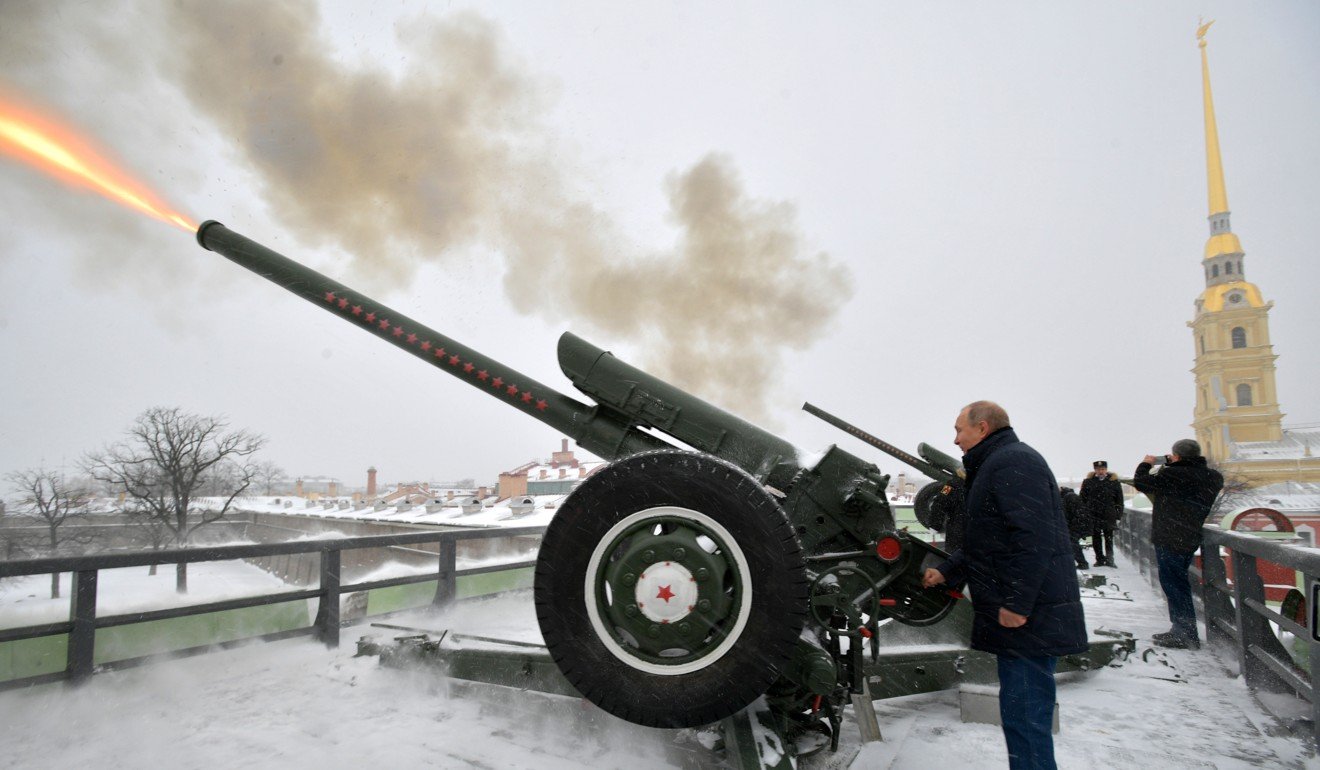
Soldier, spy: more details of Russian President Vladimir Putin’s Soviet past revealed
- Russian president, on a visit to a fortress, says he commanded a howitzer artillery battalion
Vladimir Putin has revealed that he commanded an artillery division during the Soviet period, a detail of his shadowy biography that was previously unknown.
Putin made the comment during a visit on Monday to St Petersburg’s Peter and Paul Fortress, where he pulled the lever on a cannon that fires a daily salute at noon over the Neva River.
“I received the rank of lieutenant as an artilleryman, as the commander of a howitzer artillery battalion … 122mm [calibre],” Putin said, according to video footage posted by the Kremlin.
He gave no further details. An official at the fortress congratulated the Russian president on a “wonderful” cannon shot.

Putin’s official biography makes no mention of his military rank of lieutenant or of his position as commanding officer of an artillery battalion.
According to the Kremlin, Putin joined the KGB immediately after graduating from the law faculty at Leningrad State University in 1975.
Sales of calendars featuring Russian leader Vladimir Putin are outstripping all others in Japan
He spent 16 years in the Soviet security service, rising to the rank of KGB lieutenant colonel before the collapse of the Soviet Union in 1991.
However, all able-bodied students at Soviet universities were required to undergo military training, after which they received the rank of reservist officer, and it is probable that Putin was referring to this. The Russian president’s revelation comes soon after his old East German secret police identification card was reportedly discovered in the Stasi archives.
Putin served as a KGB officer in Dresden in the 1980s. The Kremlin has neither confirmed nor denied that Putin was issued a Stasi identification.
There is little reliable information on Putin’s work in Dresden; one possibility is that he was tasked with entrapping and recruiting foreigners who were studying or working in the city.
Putin is known to have worked in counter-intelligence during his KGB days.
Some reports allege that his KGB duties included the surveillance of Soviet political dissidents, but these have never been confirmed.

